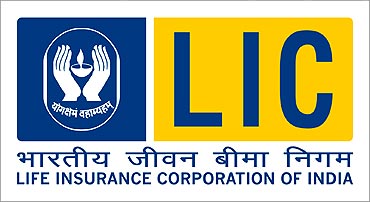Photographs: Reuters Sadique Neelgund
Life insurance companies launch many new schemes every year. Therefore, when they launch a scheme, the buzz created by their advertisements convinces investors that they can't afford to miss this opportunity.
And more often than not, they tend to buy the policy without knowing the details.
For instance, Life Insurance Corporation of India recently launched Samridhi Plus, a unit-linked plan and a highest-NAV guaranteeing scheme.
It's a close-ended one, open till May this year and matures in 10 years time.
Investments in such products are due to either of the following reasons: Surplus money, getting maturity proceeds from another policy or last-minute investments for tax exemption.
In such circumstance, one should step back and think before writing a cheque. Here are a few things you must consider -
Insurance cover
Insurance policy is bought for risk cover. But, most Ulips give poor cover and hence, are sold as investment products.
...
Think before investing in insurance schemes
Image: Mutual funds are best option with lesser risks.Photographs: Reuters
This amount doesn't add much to one's insurance need and the scheme doesn't ensure safety from eventualities.
Investment returns
Ulip are market-linked products and come with risks. Assuming 10 per cent return on Ulips, the real yield will be 8 per cent (net of all charges), that too, not guaranteed.
At 30, if you pay Rs. 20,000 as premium for 5 years, you will invest Rs. 1 lakh and get Rs. 1.73 lakh on maturity after 10 years. Look at other investment options which will give you over 8 per cent in 10 years. Mutual funds are best option with lesser risks.
Investment risk
Many highest NAV guarantee plans use dynamic hedging strategy. The fund manager starts with heavy allocation in equity and slowly moves towards debt, making the product safer with low returns.
...
Think before investing in insurance schemes
Image: Investment oriented insurance products are for amateurs.Photographs: Reuters
Charges
Investment oriented insurance products may be good for amateurs or those underinsured. But, costs are high and eat into returns. Even after regulatory moves, these are comparatively expensive.
There are charges for premium allocation, policy administration, fund management, guarantee and mortality. Instead, mutual funds are much cheaper with zero entry load and even exit load, in some cases.
Taxation
This is the only positives here. Premiums and maturity amount are exempted under Section 80C. But,other products like ELSS and PPF, which can give you similar or higher returns along with the tax benefits.
Therefore, invest in new investment-linked insurance schemes only if you don't have an option and have not started saving for your future goals.
The writer is a certified financial planner






article